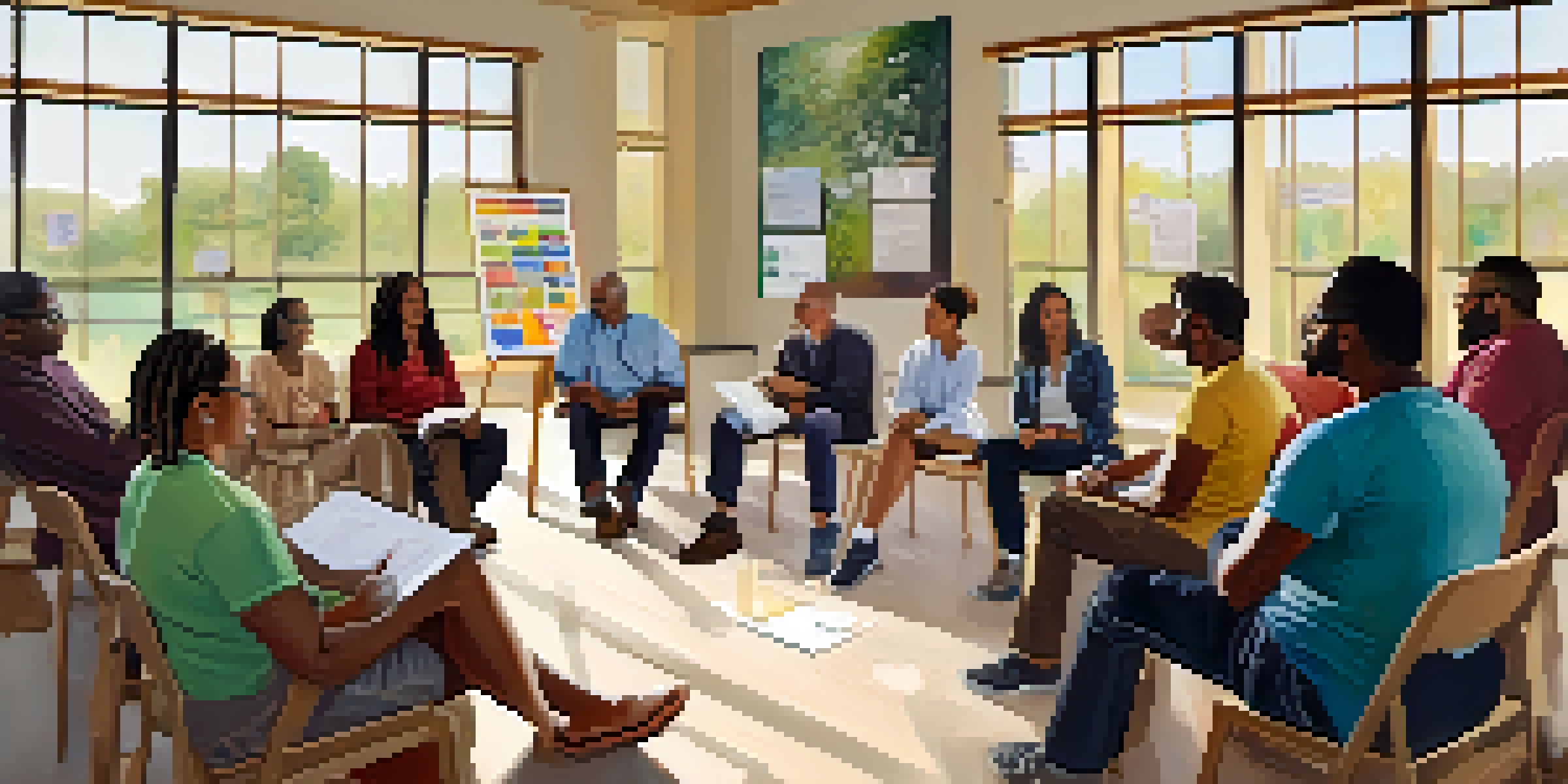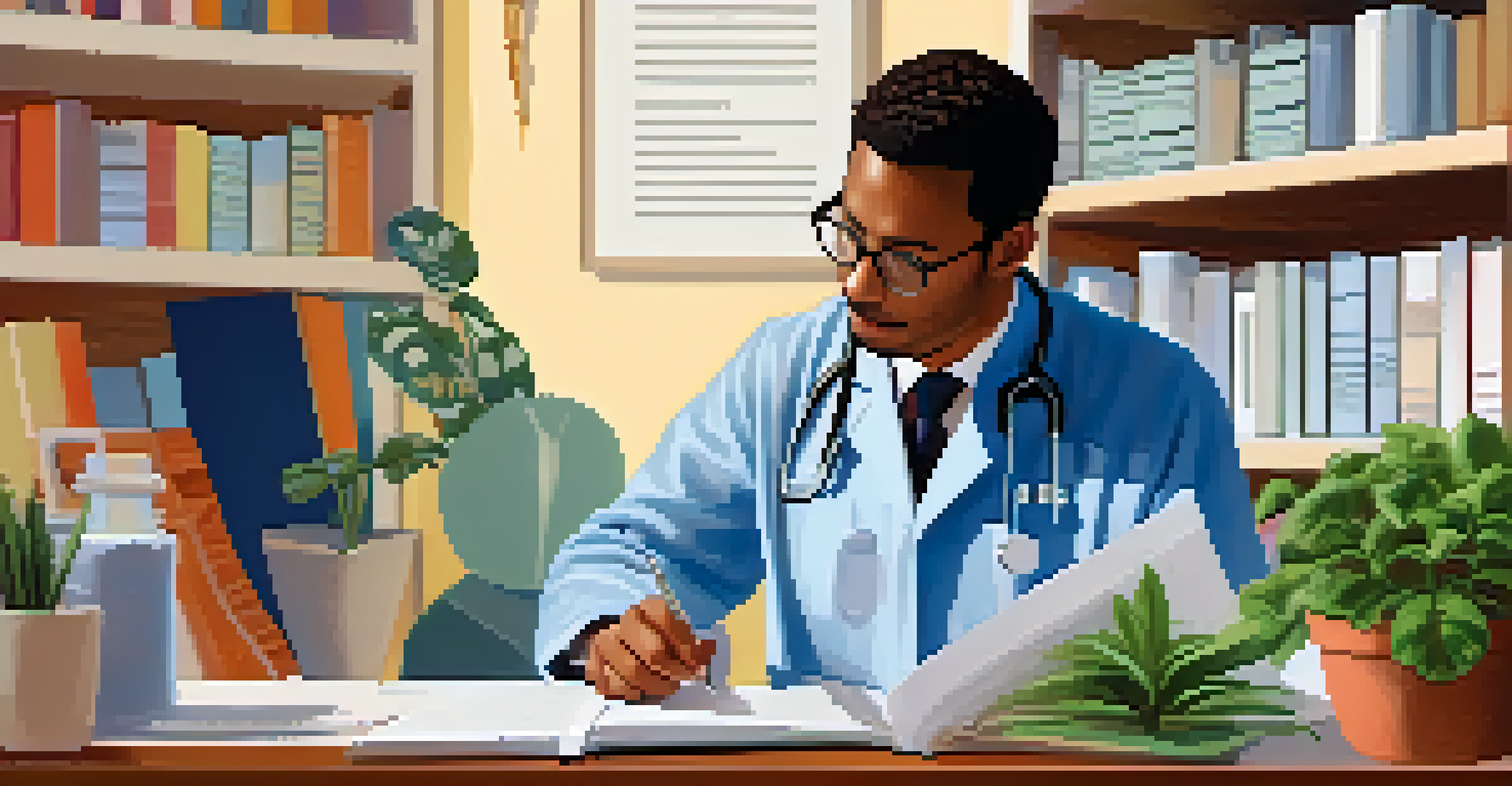Navigating Health Information: Tips for Better Literacy

Understanding Health Literacy: What It Means
Health literacy refers to the ability to access, understand, and use health information effectively. It's not just about reading; it encompasses interpreting data, making informed decisions, and knowing how to navigate the healthcare system. Poor health literacy can lead to misunderstandings and mismanagement of health conditions.
Health literacy is a key to better health. It empowers individuals to make informed decisions about their health and wellness.
For example, if someone cannot understand the instructions on a prescription label, they may take the wrong dosage, leading to serious health risks. This underscores the importance of being proactive about improving your health literacy. It’s crucial for everyone, regardless of their background or education level.
Enhancing health literacy means empowering yourself and making informed choices about your health. By understanding what health literacy is, you can start taking steps toward better health outcomes.
Identifying Reliable Health Information Sources
In today's digital age, the internet is flooded with health information, but not all of it is reliable. Identifying trustworthy sources is essential, as misinformation can lead to harmful decisions. Look for websites that are backed by reputable organizations, such as government health departments or established medical institutions.

For instance, the Centers for Disease Control and Prevention (CDC) and the World Health Organization (WHO) are two reliable sources for health information. These organizations provide data that is thoroughly researched and vetted by professionals in the field. Cross-referencing information across multiple sources can also help ensure its accuracy.
Importance of Health Literacy
Health literacy empowers individuals to access, understand, and utilize health information effectively, leading to better health outcomes.
Remember, if something sounds too good to be true, it probably is. Being discerning about where you get your health information can protect you from misleading claims.
Decoding Medical Jargon: Speak the Language
Medical terminology can often sound like a foreign language, making it difficult for many to understand their health conditions. Learning some basic medical terms can significantly improve your ability to comprehend health-related materials. For example, knowing that 'hypertension' means high blood pressure can help you better understand your doctor’s advice.
The best way to predict your future is to create it. This applies to health literacy by encouraging individuals to seek out knowledge and resources to take control of their health.
Don’t hesitate to ask healthcare providers to explain terms you don’t understand. A good physician will appreciate your desire to learn and will gladly clarify any confusion. Additionally, many health websites offer glossaries of common terms that can serve as handy reference tools.
By breaking down these complex terms, you’ll feel more empowered during medical discussions and better equipped to advocate for your health.
Effective Communication with Healthcare Professionals
Being able to communicate effectively with your healthcare provider is crucial for your health literacy. Before your appointment, jot down questions or concerns you have; this ensures you cover everything important. Don’t be afraid to express your worries or seek clarification on medical advice or treatment plans.
For instance, if your doctor prescribes a medication, ask about its purpose, side effects, and alternatives. This not only helps you understand your treatment better but also builds a trusting relationship with your provider. Remember, healthcare professionals are there to help you, and they value your input.
Finding Reliable Health Sources
Identifying trustworthy health information sources, like the CDC and WHO, is essential to avoid misinformation and make informed health decisions.
Good communication can lead to better health outcomes and a more personalized approach to your care.
Utilizing Visual Aids for Better Understanding
Visual aids such as charts, infographics, and videos can significantly enhance your understanding of health information. Our brains often process visual data more efficiently than written text, making it easier to grasp complex concepts. For example, a visual representation of how a disease affects the body can give you insight that text alone might lack.
Many health organizations produce easy-to-understand visuals that break down complicated subjects. These resources can be particularly helpful for visual learners or those who struggle with written language. Additionally, don’t hesitate to ask your healthcare provider if they have any visual materials that can aid your understanding.
Incorporating visual aids into your learning process can make health information more accessible and less intimidating.
Engaging with Community Health Resources
Community health resources can be invaluable in improving your health literacy. Local organizations often provide workshops, health screenings, and informational sessions that can help you learn more about specific health issues. Engaging with these resources can also connect you to others who share similar health concerns, creating a support network.
For example, community centers might offer classes on nutrition, exercise, or managing chronic diseases. These programs often provide both knowledge and practical skills, empowering you to take control of your health. You can also find local support groups that offer a safe space to discuss health challenges and share experiences.
Effective Communication with Doctors
Clear communication with healthcare providers enhances understanding of medical advice and fosters a trusting relationship.
By tapping into community resources, you're not just learning; you're also building relationships that can enhance your health journey.
Continuously Updating Your Health Knowledge
Health information is constantly evolving, and staying informed is crucial for effective health management. Make it a habit to regularly update your knowledge through credible sources. Subscribing to health newsletters, following reputable health organizations on social media, and attending health fairs can keep you in the loop.
For instance, new research may reveal better treatment options for existing conditions or new health risks. Staying informed not only benefits you but also allows you to educate those around you. Sharing knowledge within your community can create a ripple effect that improves overall health literacy.

Remember, being proactive about your health information is a continuous journey, not a one-time task.